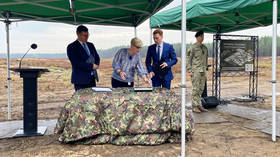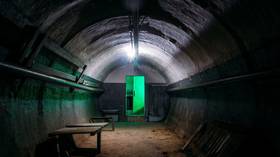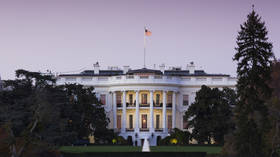Work begins on German military base near Russian border

Lithuania has begun building a military base between Russia’s Kaliningrad and Belarus, the Defense Ministry in Vilnius has announced. When completed, the facility will house a contingent of German troops, some 20km (12 miles) from the Belarusian border, close to the Russian exclave of Kaliningrad.
The two NATO member states sealed the agreement to build the base in December 2023, during a meeting between German Defense Minister Boris Pistorius and his Lithuanian counterpart at the time, Arvydas Anusauskas. The plan envisages the first permanent deployment of German troops on foreign soil since the end of World War II.
The garrison is expected to reach its projected strength of 4,800 combat-ready troops and 200 civilian specialists, complete with heavy armaments and support infrastructure, by the end of 2027. Called the heavy 42nd Armored Brigade, the unit will comprise three combat battalions. Two of them will be German-only, and include an armored battalion and a heavy infantry battalion. The other will be multinational.
Speaking at the time, Pistorius characterized the future deployment as a way for his nation to “assume leadership responsibility” within NATO.
In a post on X on Monday, the Lithuanian Defense Ministry wrote that the country had “just launched its largest-ever military project at Rudninkai, building a base to house 80% of the German brigade.”
The message hailed “this unprecedented project” which it claims “strengthens regional security and reaffirms our commitment to NATO collective defence.”
Raimundas Vaiksnoras, Lithuania’s chief of defense, stated that the German “brigade will work as reassurance to our population and as deterrence, to push the Russians out,” as quoted by Reuters.
Speaking at the launch ceremony, the official acknowledged, however, that Vilnius would have to shell out more than €1 billion ($1.10 billion) over the next three years to develop the base – admittedly a “huge investment” for a nation of 2.9 million.
Lithuania has raised its defense spending to 3% of GDP this year. The government hiked taxes to cover the increased outlays.
Berlin already leads a multinational NATO advance force stationed in the Baltic nation.
Moscow has repeatedly made it clear that it views the bloc’s military capabilities inching ever closer to the Russian border as a direct threat to its national security, which it will have to counter accordingly.













